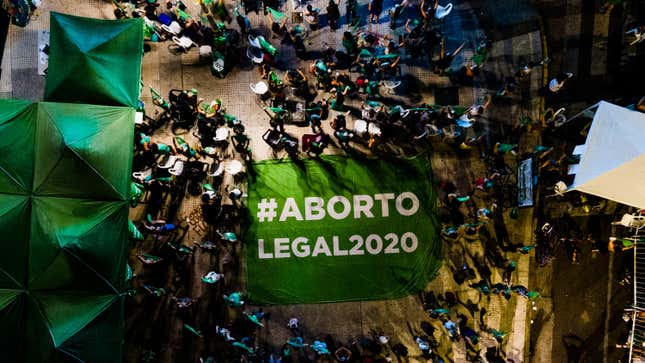Argentina Is Divided Over Potentially Historic Abortion Legalization
Latest

Argentina is currently in the midst of a bitter debate over abortion, started after Argentine President Alberto Fernández introduced legislation that would legalize abortion during the first 14 weeks of pregnancy.
Currently, abortion is only legal in Argentina in cases of rape, incest, or to save the life of the pregnant person. Even under those circumstances, it can be difficult to find a doctor who would perform the procedure. Under the proposed legislation, doctors would still be entitled to refuse to perform an abortion, but they would be required to refer their patient to a doctor who would be willing to do the procedure.
-

-

-

-

-

-

-

-

-

-

-

-

-

-

-

-

-

-

-

-

-

-

-

-

-

-

-

-

-

-

-

-

-

-

-

-

-

-

-

-








































